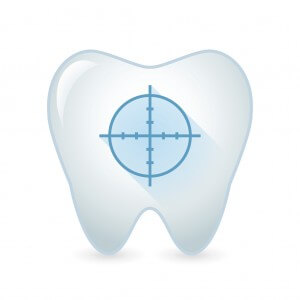
Did you know?
- In order to taste what we’re eating, the food molecules must first dissolve in our saliva
- Unique proteins in saliva help wounds in the mouth heal faster than anywhere else on the body
- Humans can potentially produce more than 150 gallons of saliva in a year – approximately enough to fill two bathtubs
But what if your salivary glands just don’t give a spit? Dry Mouth is a very real issue for many people and one that shouldn’t be ignored.
What Xerostomia Is
Dry mouth (also known as xerostomia), is abnormal dryness of the mucous membranes in the mouth caused by a reduction of the flow of saliva or a change in its composition. It is a potential symptom of several underlying disorders or can occur as a side effect of certain medications. Though it’s not a serious medical problem by itself, if left untreated dry mouth can contribute to poor nutrition, psychological discomfort, increased likelihood of mouth infections and tooth decay.
What Causes It
According to the American Dental Association, there are several main causes of dry mouth:
Drugs
Medication is the most frequent cause of Xerostomia, with over 400 potential dry mouth-causing medicines available by prescription and over-the-counter. Some of the most common ones include antihistamines, decongestants, antidepressants, and drugs for hypertension.
Disease
Autoimmune conditions are the most common dry mouth culprit, with Sjörgen Disease being the most-often associated. Other conditions that contribute to dry mouth include Cystic Fibrosis, Hepatitis C, and Lymphoma, as well as uncontrolled diabetes and hypertension.
Cancer Therapy
Patients undergoing radiation or chemotherapy for head and neck cancers often experience Xerostomia symptoms, which typically resolve after the treatment ends. However, chronic dry mouth may occur when the toxicity of chemo drugs or radiation damages the salivary glands.
What You Can Do About It
The most pressing dental concern for patients is the effect of dry mouth on teeth. As we’ve discussed, saliva plays an important part in keeping your tooth enamel intact and healthy, so if left untreated, prolonged Xerostomia can lead to increased bacteria, plaque, and tooth decay.
However, the good news is that it is a very treatable condition. The top strategies are also easy to implement, including:
- Adequate hydration to help keep the mouth moist
- Use sugar-free gum, candy, or mints to stimulate saliva production
- Leave a room vaporizer on at night to add moisture to the air
- Use an over-the-counter artificial saliva substitute
If a dry mouth is bothering you, ask us at your next appointment and we’ll recommend a solution to help you keep your mouth and teeth healthy.
